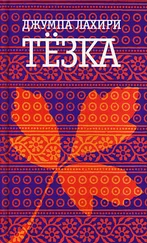They come by for tea. I’ve placed a tray on the dining table with pastries I went out to buy this morning. The little girl is two years old. She goes into the living area and amuses herself quietly while the adults have their tea. My friend sets her up on the couch, handing her some books and toys, saying, “Don’t touch anything, my love.”
The husband, a skinny guy who looks a few years younger than she is, talks about their busy schedule. Museum exhibits and monuments they want to see, people to meet up with.
“My wife was heart-set on fitting in time to visit you,” he tells me.
He’s an academic who writes books. It’s easy to see him standing at the lectern, even though, to tell the truth, he feels more like one of my precocious students. He mentions that his father was a diplomat and that he was raised all over the world. He strikes me as a pompous man. He’s not even attractive. His eyes are small and his lips look tight. The city doesn’t enchant him, after just two days he’s complaining about our haphazard way of life. He says, “The amount of garbage is insane. The streets are complete chaos. How do people live here?” And I wonder, what exactly did he learn about the world after living in all those different countries?
He eats almost all the pastries I’d bought with the little girl in mind. The child prefers dry, tasteless biscuits transported from abroad, stored in her knapsack. “We always keep a packet in there, that way she feels at home wherever we go,” my friend explains.
The husband selects the creamiest, stickiest pastries, the ones with jam on the inside or chocolate on the outside. “We’re skipping dinner tonight and taking a long walk, instead. I need to work off all this heavy food.”
Maybe he doesn’t like me, either. He probably can’t figure out why his wife, who’s such a sweet and cheerful woman, ever became friends with someone moody like me. Not quite what you made her out to be, he’ll remark later on. What was she like when you knew her? he’ll ask. But I, on my end, also feel sorry for my friend for marrying such an ill-mannered man. On the other hand, they’ve produced a well-behaved child.
Out of the blue he gets up and starts studying my bookshelves, scrutinizing all my books. What he’s really doing is studying me. I don’t like the way he’s looking at those books, it gets on my nerves. He pulls one out and opens it, he reads a bit while his wife takes the little girl to the bathroom. It’s a book of poems, an out-of-print volume that I’d picked up one Sunday at a flea market. I’d haggled long and hard on the price.
“Any good?”
“I think so, yes.”
“I tried to read him years ago and I quit after two pages, I couldn’t get through it.”
“I like him. I think he’s a great writer.”
“Can I borrow this?”
It comes out more as a statement than a question. And without hesitating I reply: “I’m sorry, but you’re traveling, who knows when we’ll see each other again?”
He glances at me, dismissive, but doesn’t say anything else. He returns the book to its place. I feel stingy but I can’t lend my book to this man, I just can’t.
My friend comes back and I notice that her green eyes, once full of light, have dulled slightly. We talk about other things. Then, somewhat abruptly, they say they have to go, they have another appointment.
I say goodbye. I wish I could have seen my friend without her husband in tow. He had done most of the talking.
“Let’s stay in touch,” she says, already at the elevator, holding her daughter in her arms. “Should we get together, just you and me?”
“Whenever you’d like,” I tell her. But I know they’ll be too busy, and that this won’t happen.
I tidy up the house and put the remaining pastries in a tin so that I can savor them slowly at breakfast for the rest of the week. Then I go check on the book he’d wanted to take away. I hope the cover hasn’t been stained by jam or chocolate. Thank goodness he hasn’t left a trace. No doubt he thought: This woman owns thousands of books and yet she’s unwilling to lend me even one. But I treasure this volume, and I doubt that he’d be able to appreciate a single word of it.
I return to the living room and am about to sit where the little girl had been playing when I see that she’s drawn a thin errant line on the white leather covering the back of the couch, with the ballpoint pen I’d left on the coffee table, next to a pile of books.
He’d been the one to put her toys into the knapsack again. No doubt he’d noticed the couch, the back of it, and the line that hadn’t been there before. But he’d said nothing to the little girl, nothing to me. He’d given me a kiss and said goodbye, thanking me for the tea.
The line is like a long strand of hair, innocuous, intolerable. A line that drifts and drifts. I can’t rub it away with my finger. Nothing I do to try to lift it works. I buy cushions, a blanket to hide it. But they’re not a solution, the cushions move around and the blanket slips down. I read on the armchair now.
In August
In August my neighborhood thins out: it wastes away like an old woman who was once a stunning beauty before shutting down completely. Some people spend the month here on purpose; they hole up gladly, turning antisocial. Others cower at the thought of those shapeless days and weeks, the severe closure. Their moods dip, they flee. I’m not a great fan of this month, but I don’t hate it, either.
At first I enjoy the peace and quiet. I greet the neighbors who are still around, who walk out in their flip-flops as if they were in some sleepy seaside town. In the few stores that remain open, at the coffee bar, people talk about their plans, upcoming vacations. They say: I love parking wherever I want, these days there’s so little traffic you can cross the avenue with your eyes closed. It’s startling to see the piazza nearly abandoned. Then at a certain point everything grows static, choked by silence and inertia, and the very lack of activity feels, paradoxically, depleting.
For the past few days the bars have been shut tight, I can’t even have a coffee outside my home. I go out in the late morning anyway, to buy food: only two of the farm stands are open, there’s not much. The food looks flaccid. It’s overpriced and already half-cooked by the sun. The proprietors stand like statues under their white tents: mute, listless characters in a mise-en-scène. They’re not the people I like to buy from. The ones I’m loyal to, who give me a discount, are away. These two are wily, they’re cheating the tourists who come here for a week or two, who rent the apartments of people who normally live on the piazza and are spending these weeks on their boats, or in the mountains, or abroad. The tourists visit the city in spite of the torrid heat, the gloomy atmosphere.
It’s impossible to spend money other than at the market. All the store owners are on vacation, they’ve pulled down their grates not for a death in the family but for merriment, and they’ve left exuberant handwritten signs with exclamation marks on their doors wishing everyone a good vacation and saying when they’ll open up again. But this year there’s something unusual going on: one of my neighbors—he’s a guy in his thirties, a bit unkempt—has decided to get rid of certain things in his house. He lives in an atypical building, it looks as though it was originally a storefront. It has a grate instead of windows or a front door.
He sits for half the day in a pair of shorts—I bet he also sleeps in them—on a stool in the middle of the alleyway closed to traffic. It’s a road to park on, or to turn down simply in order to back out again. Next to the stool, he’s set up two or three folding tables, and on them he displays a series of objects that are both useful and utterly useless: vases, silverware, science textbooks, chipped hand-painted porcelain bowls, lackluster teacups, toys, various knickknacks. Women’s shoes, pretty but battered. Evening bags lined with silk that’s faded and slightly soiled. There’s an ugly multicolored fur on a hanger, out of place, totally out of season.
Читать дальше
![Джумпа Лахири Whereabouts [calibre] обложка книги](/books/384312/dzhumpa-lahiri-whereabouts-calibre-cover.webp)




![Хелен Виннер - 33 несчастья Алисы [calibre]](/books/384302/helen-vinner-33-neschastya-alisy-calibre-thumb.webp)
![Даниэла Стил - Finding Ashley [calibre]](/books/384308/daniela-stil-finding-ashley-calibre-thumb.webp)
![Аманда Горман - The Hill We Climb [calibre]](/books/384311/amanda-gorman-the-hill-we-climb-calibre-thumb.webp)
![Дэвид Балдаччи - A Gambling Man [calibre]](/books/384314/devid-baldachchi-a-gambling-man-calibre-thumb.webp)
![Джон Ирвинг - Viename asmenyje [calibre]](/books/384315/dzhon-irving-viename-asmenyje-calibre-thumb.webp)
![Джон Ирвинг - Paskutinė naktis Tvisted Riveryje [calibre]](/books/384317/dzhon-irving-paskutine-naktis-tvisted-riveryje-cal-thumb.webp)
![Джон Ирвинг - Pasaulis pagal Garpą [calibre]](/books/384318/dzhon-irving-pasaulis-pagal-garpĄ-calibre-thumb.webp)
![Джон Ирвинг - Našlė vieneriems metams [calibre]](/books/384320/dzhon-irving-naŠle-vieneriems-metams-calibre-thumb.webp)